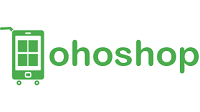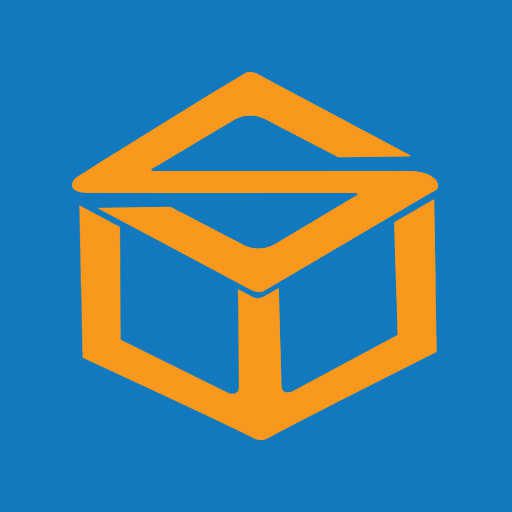Description

Inoday eCommerce Solution

OhoShop
Comprehensive Overview: Inoday eCommerce Solution vs OhoShop
Inoday is a company that provides various software solutions, including eCommerce solutions like OhoShop. Here's a comprehensive overview of OhoShop:
a) Primary Functions and Target Markets
OhoShop:
-
Primary Functions:
- OhoShop is a mobile commerce platform designed to help small and medium-sized retailers create their own branded eCommerce mobile apps without the need for expensive development processes.
- It offers functionalities like catalog management, order management, payment gateway integration, inventory management, push notifications, and customer management.
-
Target Markets:
- OhoShop primarily targets small to medium-sized businesses (SMBs) within the retail sector, including grocery stores, fashion boutiques, electronics shops, and other niche markets that are looking to expand their reach through mobile commerce.
- It places a particular emphasis on businesses that want to establish or enhance their presence in the mobile commerce space without significant investment in technology development.
b) Market Share and User Base
Market Share and User Base:
- OhoShop, being a specialized solution for mobile commerce, has a smaller market share compared to global eCommerce giants like Shopify or WooCommerce, which cater to a broader eCommerce audience with both desktop and mobile solutions.
- Its user base is predominantly within the SMB segment that is looking for cost-effective solutions to enter the mobile app market. The platform's focus on ease of use and affordability makes it an attractive option for businesses in developing markets that may not have significant resources or technical expertise.
c) Key Differentiating Factors
Key Differentiating Factors:
-
Mobile-First Approach: Unlike many eCommerce platforms that offer mobile solutions as an extension of their primary offerings, OhoShop is built with a mobile-first mindset. This allows retailers to focus directly on mobile app-based shopping experiences, which are increasingly popular among consumers.
-
Affordability and Accessibility: OhoShop provides an affordable entry point for retailers to enter the mobile commerce marketplace, focusing on offering essential features at a competitive price point. This is particularly beneficial for SMBs in resource-constrained environments.
-
Ease of Use: The platform emphasizes user-friendliness, ensuring that even those with limited technical skills can create and manage their mobile commerce app. This is achieved through a simplified setup process and an intuitive interface.
-
Niche Focus: OhoShop tailors its offerings to specific retail niches, understanding the unique requirements of different sectors like grocery, fashion, etc., and providing features that cater specifically to these industries.
-
Dedicated Customer Support: OhoShop provides dedicated support teams to assist its users in setting up and optimizing their mobile commerce apps, ensuring a smooth transition for retailers new to the eCommerce space.
Overall, while OhoShop may not hold a large market share compared to global eCommerce platforms, its focused mobile-first approach and cost-effective solution resonate well with SMBs looking to leverage mobile commerce capabilities.
Contact Info

Year founded :
Not Available
Not Available
Not Available
Not Available
Not Available

Year founded :
2016
+91 80884 08840
Not Available
India
http://www.linkedin.com/company/ohoshop
Feature Similarity Breakdown: Inoday eCommerce Solution, OhoShop
Inoday eCommerce Solution and OhoShop both cater to businesses looking to establish or enhance their online retail presence. While both platforms aim to offer comprehensive support for eCommerce operations, there are distinct similarities and differences in their features and user experience. Here's a breakdown of their feature similarities and differences:
a) Core Features in Common
-
Online Storefront: Both platforms offer customizable online storefronts where businesses can showcase their products.
-
Product Management: Features for adding, editing, and managing product listings, including inventories, are present in both.
-
Payment Gateway Integration: They provide integration with multiple payment gateways to facilitate online transactions.
-
Order Management: Both solutions include tools for processing and managing orders, including tracking shipments and handling returns.
-
Customer Management: Each platform offers customer data management, allowing businesses to keep track of customer information and purchase history.
-
Analytics and Reporting: They offer basic analytics tools to track sales, traffic, and other key performance metrics.
-
Responsive Design: Both platforms ensure their online stores are mobile-responsive, providing a seamless shopping experience across devices.
b) Comparative User Interfaces
-
Inoday eCommerce Solution: Inoday is typically more feature-rich and may offer a more complex user interface that targets medium to large businesses. It often integrates with broader ERP systems which can add a layer of complexity in navigation and usage.
-
OhoShop: Designed to be user-friendly with small to medium enterprises in mind, OhoShop generally offers a more straightforward interface that is easier for users without technical expertise to navigate. It’s often praised for its simplicity and ease of setup.
c) Unique Features
-
Inoday eCommerce Solution Unique Features:
- ERP Integration: Inoday specializes in integrating with larger enterprise resource planning (ERP) systems. This allows for a more holistic management of business operations, including finance, HR, and supply chain activities, alongside eCommerce.
- Customization and Scalability: It offers greater scalability and customization options, making it suitable for businesses expecting rapid growth or those with specific business process needs.
-
OhoShop Unique Features:
- Mobile-First Approach: OhoShop places a significant emphasis on mobile commerce, often prioritizing mobile app development that helps businesses reach customers on smartphones and tablets effectively.
- Location-Based Features: Offers location-based services that can be particularly useful for businesses with multiple physical outlets.
- Subscription Model Focus: Caters to businesses looking to implement subscription-based sales models, providing specific tools for this purpose.
In summary, while both Inoday eCommerce Solution and OhoShop offer a solid core set of eCommerce features, they target different business markets with their unique offerings and user interfaces. Inoday is more suited for larger businesses needing comprehensive ERP integration, while OhoShop excels in simplicity and a mobile-first approach for SMEs.
Features

Not Available

Not Available
Best Fit Use Cases: Inoday eCommerce Solution, OhoShop
Inoday, known for its diverse IT solutions, offers the eCommerce solution OhoShop that targets a specific segment of businesses and projects. Here's a breakdown of its best fit use cases:
a) Best Types of Businesses or Projects for Inoday eCommerce Solution
-
Small to Medium-Sized Enterprises (SMEs):
- E-commerce Startups: OhoShop is ideal for startups looking to establish an online presence without heavy investment in custom development.
- Retailers with Limited Online Presence: Traditional brick-and-mortar retailers wanting to expand their sales channels online can benefit significantly.
-
Niche and Local Market Retailers:
- Boutique and Specialty Stores: Businesses focusing on niche markets or specialized products (such as handmade crafts or organic produce) will find OhoShop's solutions particularly advantageous given its ability to implement highly customized and appealing storefronts.
- Local Grocery and Food Product Sellers: Local sellers focused on groceries or other food products can leverage OhoShop for features tailored specifically to these types of products (such as real-time inventory updates, delivery management, etc.).
-
Subscription-Based Merchandises:
- Companies dealing with products/services on a subscription basis, whether physical goods or digital offerings, can streamline their subscription management and recurring billing with OhoShop’s capabilities.
b) Preferred Scenarios for OhoShop
-
Quick Market Entry:
- Businesses looking to launch their eCommerce platform rapidly will find OhoShop advantageous due to its ready-to-deploy solutions that require minimal setup time.
-
User-Friendly and Low Maintenance:
- Organizations that lack extensive technical expertise or IT support staff can benefit from OhoShop’s user-friendly interface and low maintenance requirements.
-
Budget Constraints:
- Companies with limited budgets for digital transformation can leverage OhoShop for a cost-effective, robust platform without incurring significant upfront costs or ongoing expenses.
d) Catering to Industry Verticals and Company Sizes
-
Industry Verticals:
- Retail and Consumer Goods: Tailored features for inventory management, order handling, and customer relationship management (CRM) make OhoShop suitable for various retail industries.
- Food and Beverage: Specific adaptations that address the needs of the food retail industry, such as integration with local delivery services and dietary filters.
- Fashion and Apparel: Offers product display features and size/color variants management that are crucial for clothing and accessories.
-
Company Sizes:
- Small Businesses: With scalable pricing and minimal initial investment required, OhoShop is accessible for small businesses trying to gain traction in the eCommerce space.
- Expanding Medium Enterprises: As businesses scale, OhoShop can handle increased transaction volumes and expanded product ranges, offering an adaptable solution for growing enterprises.
By providing flexible and essential eCommerce functionalities tailored to specific business needs or constraints, OhoShop supports varied demands effectively, giving businesses a solid foundation to build and expand their online marketplaces.
Pricing

Pricing Not Available

Pricing Not Available
Metrics History
Metrics History
Comparing teamSize across companies
Conclusion & Final Verdict: Inoday eCommerce Solution vs OhoShop
To provide a comprehensive conclusion and final verdict for Inoday eCommerce Solution and OhoShop, let's analyze each product individually and then compare them to determine the best overall value.
a) Best Overall Value
Considering all factors such as pricing, features, flexibility, scalability, and customer support, OhoShop tends to offer the best overall value for small to medium-sized businesses looking to establish a robust online presence quickly. This is primarily due to its user-friendly interface, mobile app integration, and dedicated e-commerce functionalities designed for both web and mobile platforms. However, the specific needs of a business might lead them to choose Inoday if they require a more custom-tailored solution with robust ERP integrations.
b) Pros and Cons
Inoday eCommerce Solution
Pros:
- Customizability: Offers flexible and highly customizable solutions, particularly for businesses with unique requirements.
- ERP Integration: Strong integration capabilities with various ERP systems, making it a good fit for businesses with advanced resource planning needs.
- Scalability: Can scale effectively with the growing demands of a business.
Cons:
- Complexity: Might be complex for small businesses or users without technical expertise to set up and manage.
- Cost: Generally more expensive than some off-the-shelf eCommerce solutions, particularly for small enterprises.
- Setup Time: Longer implementation timelines can be expected due to its customizable nature.
OhoShop
Pros:
- Ease of Use: User-friendly interface with a focus on ease of implementation and management.
- Mobile Readiness: Strong support for mobile commerce with dedicated app development, which can be a significant advantage in mobile-centric markets.
- Affordability: More budget-friendly, especially for small businesses and startups.
- Dedicated Features: Offers specialized features for retail businesses, which are regularly updated.
Cons:
- Limited Customization: Less flexibility compared to Inoday, which might not meet the needs of highly specialized business processes.
- Scalability Constraints: Might not scale as efficiently for enterprises experiencing rapid or massive growth.
- Less Comprehensive ERP Features: Not designed to handle complex ERP needs like those of Inoday.
c) Recommendations
For users trying to decide between Inoday eCommerce Solution and OhoShop, here are some specific recommendations:
-
Assess Business Needs:
- If your business requires significant customization, robust ERP integration, and plans for rapid growth, Inoday is likely the better choice.
- If you are a small to medium-sized business looking for an efficient, cost-effective entry into the eCommerce market, OhoShop offers a strong package for getting up and running quickly.
-
Consider Technical Expertise:
- Businesses with limited technical expertise should lean towards OhoShop due to its ease of use and quicker implementation process.
- Inoday may require a dedicated IT team or consultant, which is an added cost and complexity.
-
Budget Constraints:
- Determine the budget that you can allocate for your eCommerce platform, including potential growth and additional features. OhoShop is generally more budget-friendly initially and for ongoing costs, making it a better fit for tight budgets.
-
Long-Term Vision:
- Align your choice with your long-term business strategy. If complex ERP functionalities are in your future plans, investing in Inoday may provide better dividends over time.
Ultimately, the choice between Inoday eCommerce Solution and OhoShop will depend on the specific needs, goals, and resources of your business. Carefully evaluating both platforms against your business criteria will guide you to the most suitable decision.
Add to compare
Add similar companies




